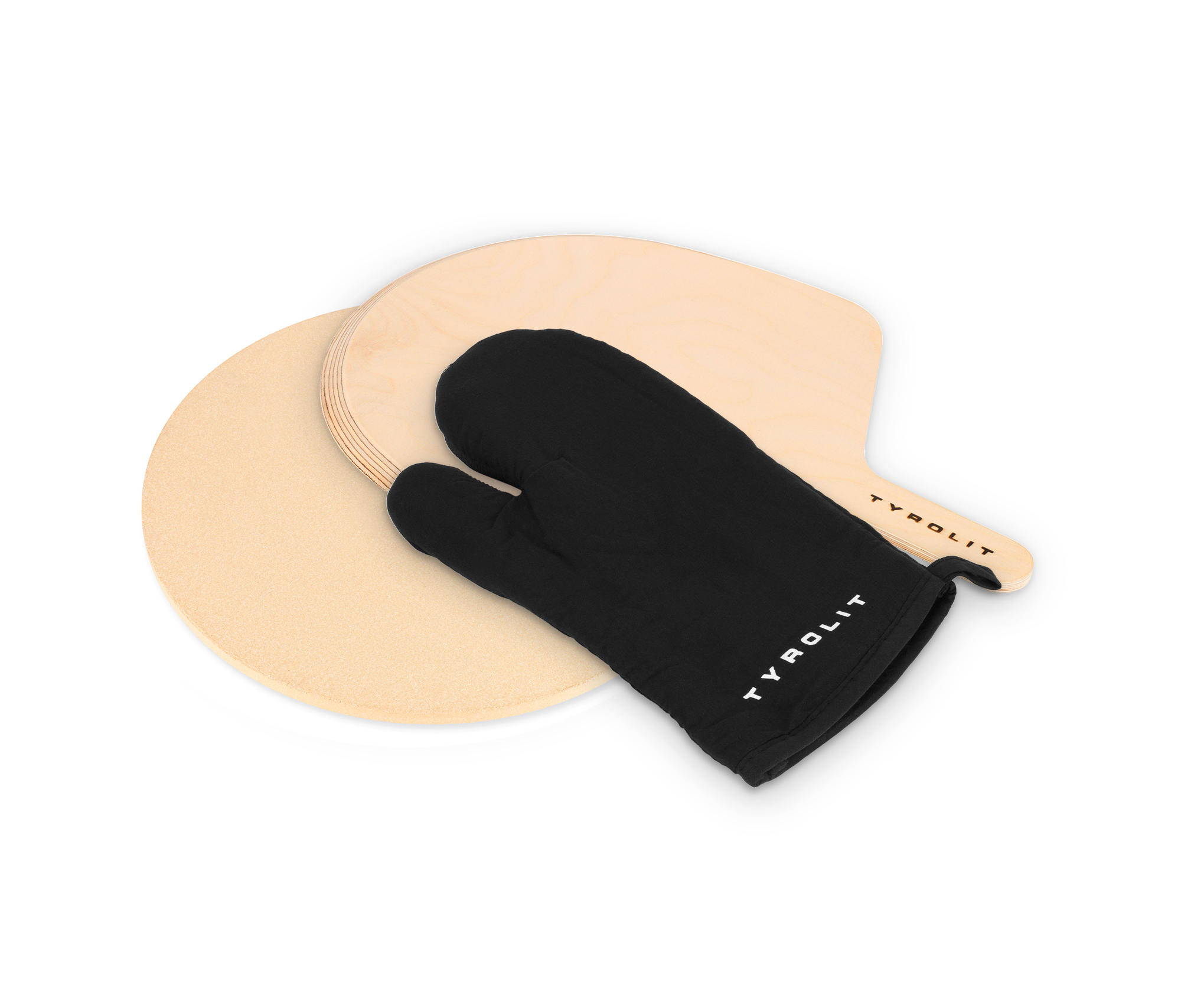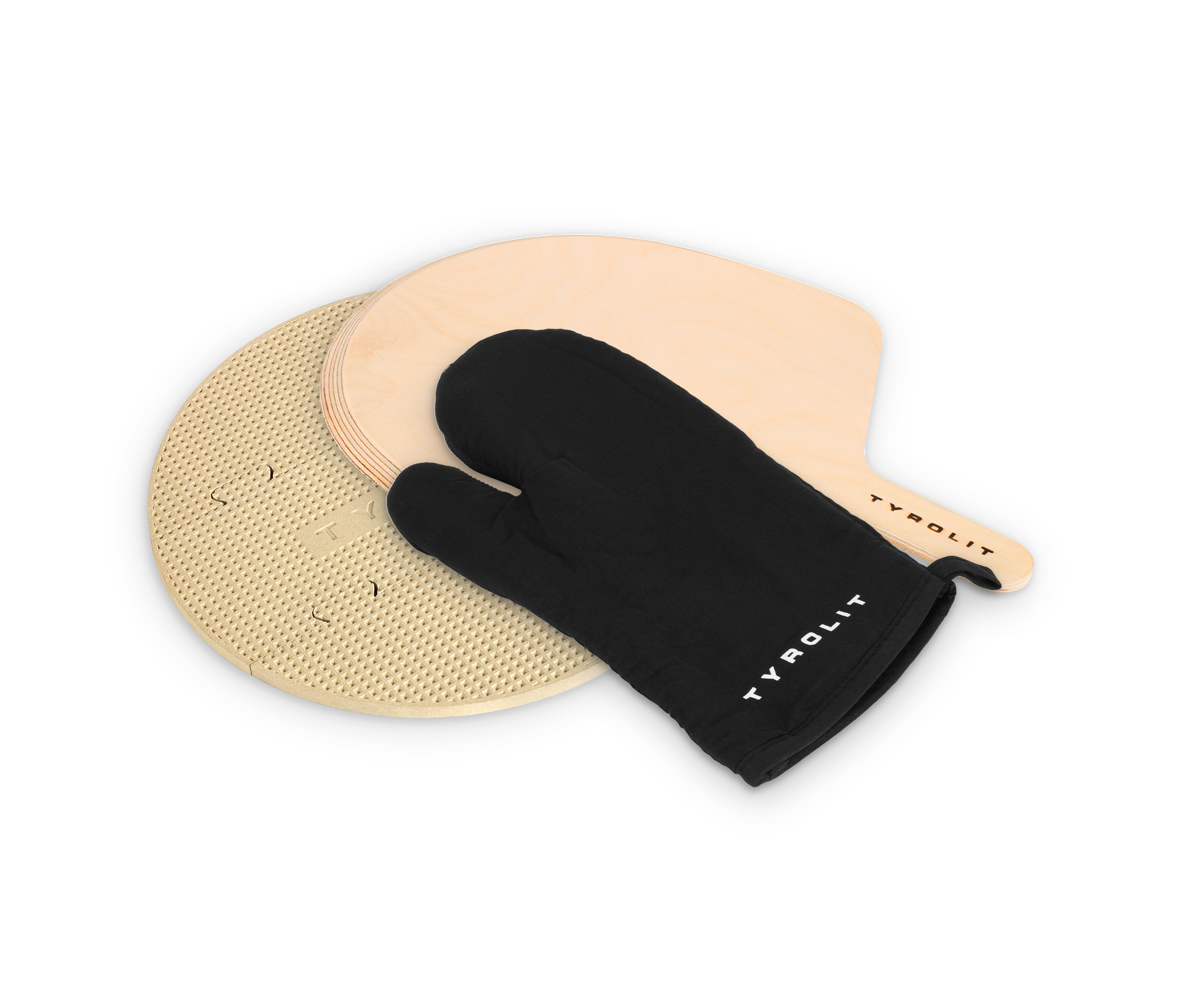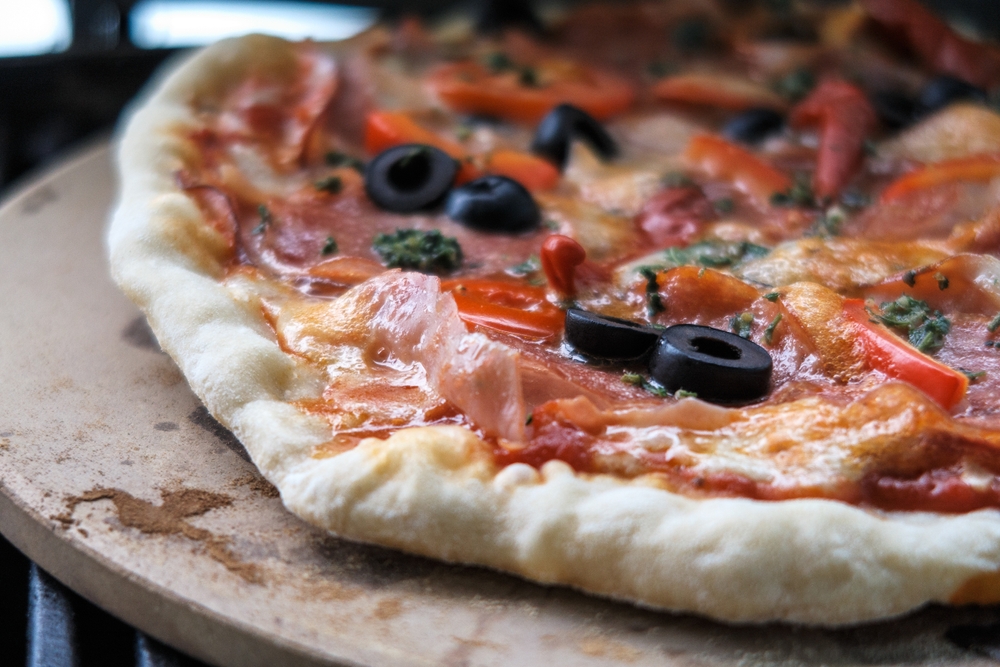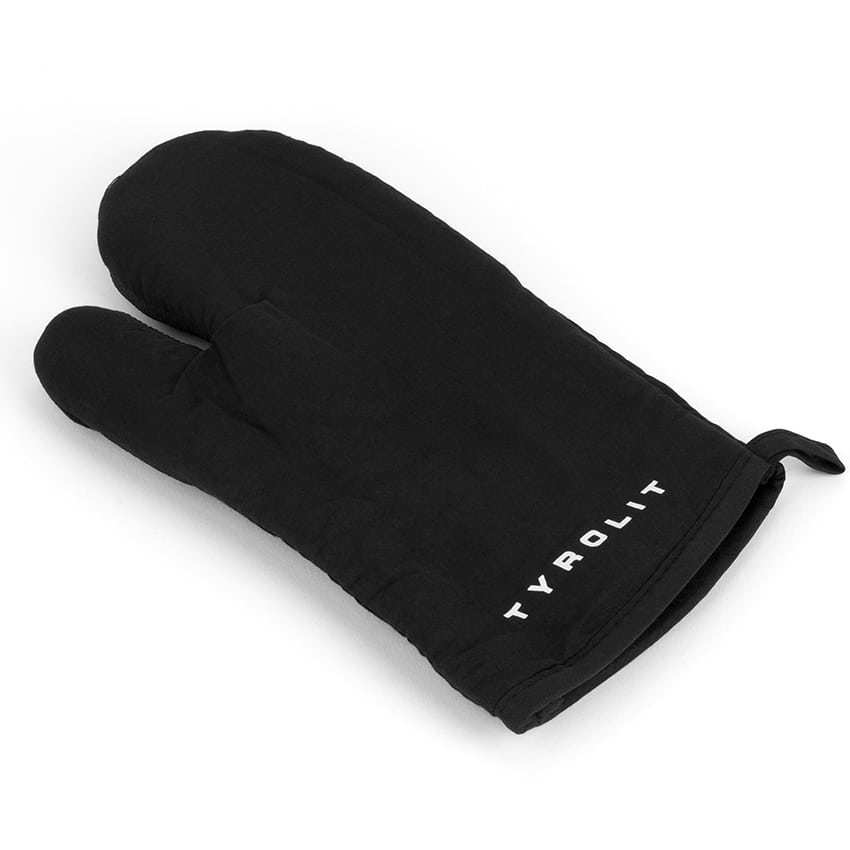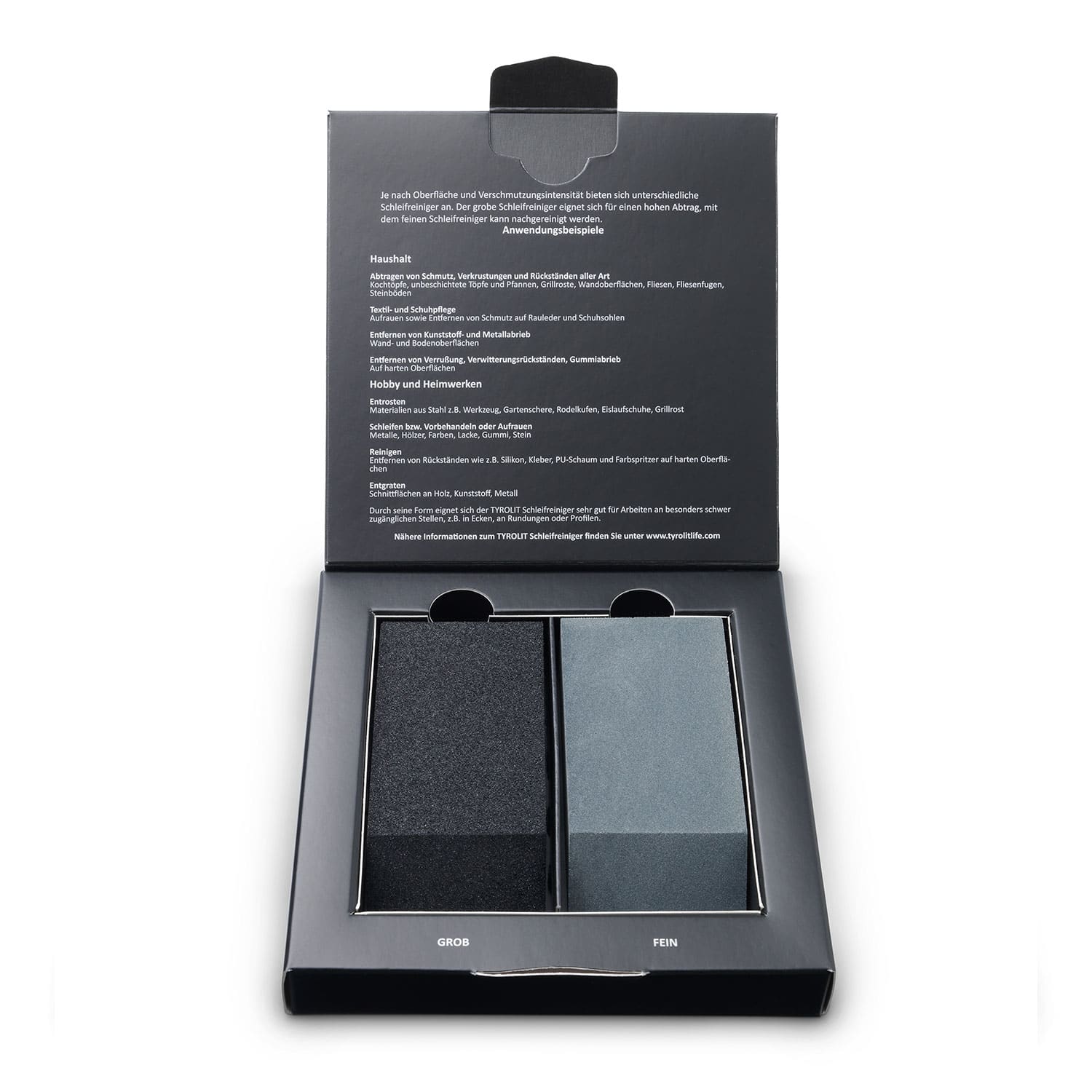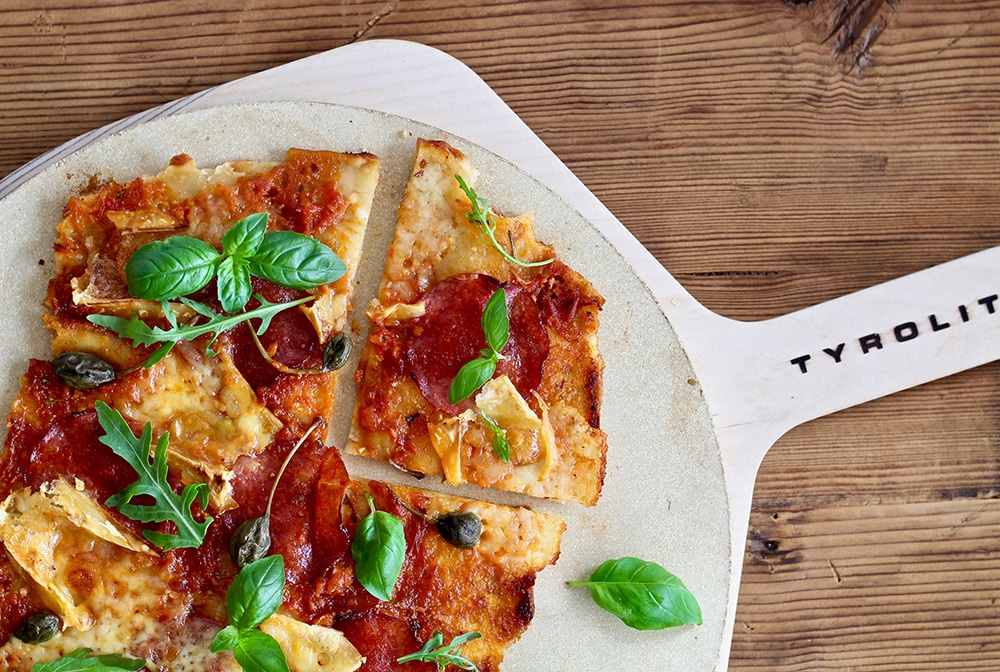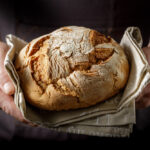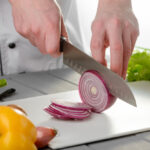How do I get the pizza onto the pizza stone?
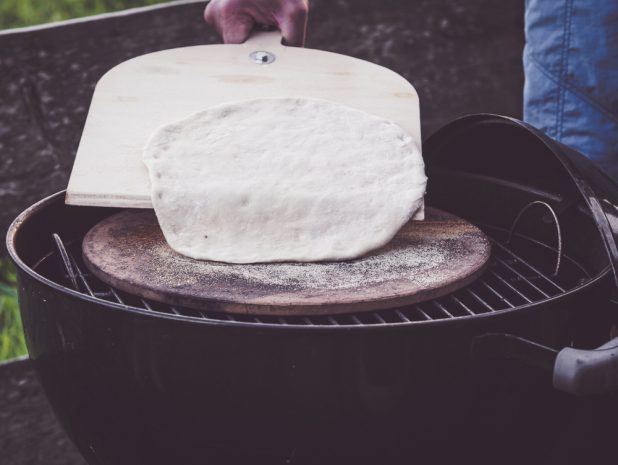
To place the fully topped pizza on the pizza stone, a pizza peel, also known as a pizza shovel, is commonly used. This tool is a favorite and especially user-friendly accessory that comes included with many pizza stones – those from Tyrolit Life included.
But exactly how is the pizza peel used? And are there alternatives for transferring the pizza onto the pizza stone?
Using the Pizza Peel to Transfer Pizza onto the Hot Pizza Stone
As previously mentioned, the pizza peel – also known as a pizza paddle – is an exceptionally popular tool for safely and undamagedly placing pizza on the pizza stone in the oven or on the grill. It is available in various materials, from metal to wood, and is included in many pizza stone sets designed for home use. Using it requires a bit of finesse, but with a little practice, you’ll be placing your pizza on the stone like a professional in no time.
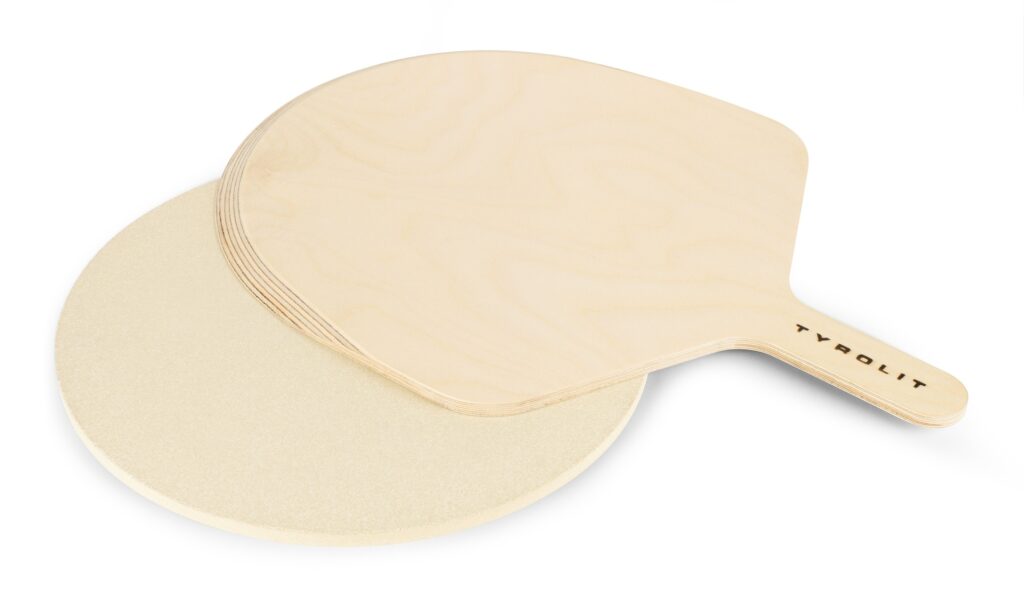
2 ways of using the pizza shovel:
- Either you first spread the dough and then directly top it on the pizza peel – alternatively, you can place baking paper on the pizza peel and transfer the topped pizza onto the pizza stone with it. It’s important that a piece of the dough lands on the pizza stone first: it will stick (no worries, only initially!) and assist in removing the pizza from the baking paper, as you should not bake it with the paper.
- Or you can place the toppings on the pizza while it’s on the work surface and only use the pizza peel to pick it up when you’re ready to transfer it to the pizza stone. Position the edge of the pizza peel at a shallow angle to the edge of your pizza. With a bit of finesse and a defined forward jerk of the peel, slide the pizza peel under the dough and lift it up
In both cases, it’s crucial to have enough flour or semolina between the pizza dough and the pizza peel to prevent it from sticking. If you’ve used enough flour, a careful yet decisive push with the peel is all it takes to slide the pizza onto the pizza stone. With a bit of practice, you’ll achieve perfection. However, there’s also an alternative if you don’t have a pizza peel—let’s explore that next.
* each pizza stone contains a wooden pizza shovel and an oven mitt (for the right hand).
Pizza Stone – All Facts on Materials, Application, and Maintenance
The pizza stone has become a must-have in countless kitchens. In this post, we'll take a look at interesting facts about this kitchen helper – one thing in advance: the pizza stone is far more versatile than you might think.
Alternative: parchment paper on cutting board or baking sheet
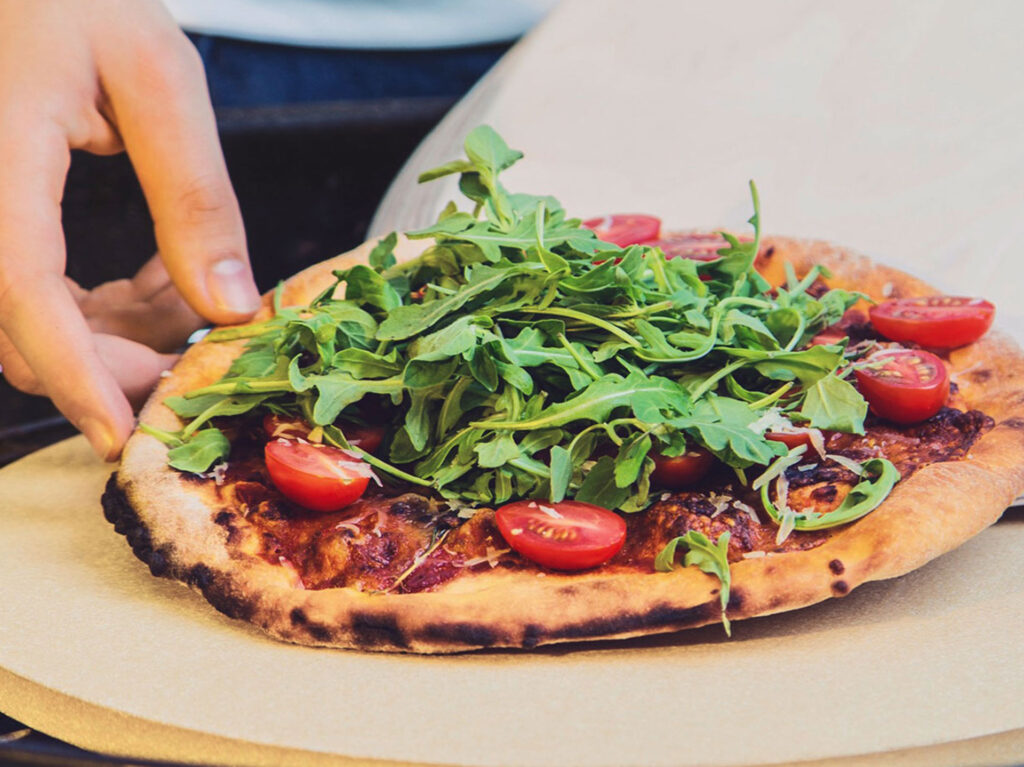
If you do not have a pizza shovel at hand, your pizza does not have to remain immobile on the work surface. Alternatively, you can make do with an inverted baking sheet or a cutting board on which you place baking paper.
Then you can top your pizza and then place it directly on the pizza stone on the grill or in the oven – with enough flour or semolina, you can prevent the pizza from sticking to the pizza stone, but also to the baking paper.
Additionally, avoid letting the baking paper remain on the pizza stone during baking. Many types are not suitable for temperatures above 220°C and may discolour or even burn.
Although the combination of baking paper and a flat base can serve as a good alternative to the traditional pizza peel, the latter is, in most instances, significantly easier to use and serves as a useful addition to the pizza stone. This is because it provides a practical means to bake pizzas that are not only crispy but also aesthetically pleasing, both in private and professional settings.
FAQs
How do I get the pizza onto the pizza peel?
Can you put parchment paper on the pizza stone?
Should you oil a pizza stone?
You may also be interested in:
Cordierite pizza stone – All details about the material
In this article, we delve into the world of pizza baking, with an emphasis on the traditional pizza stone that forms the basis for crispy, delicious pizzas. You will also learn about the benefits of cordierite.

